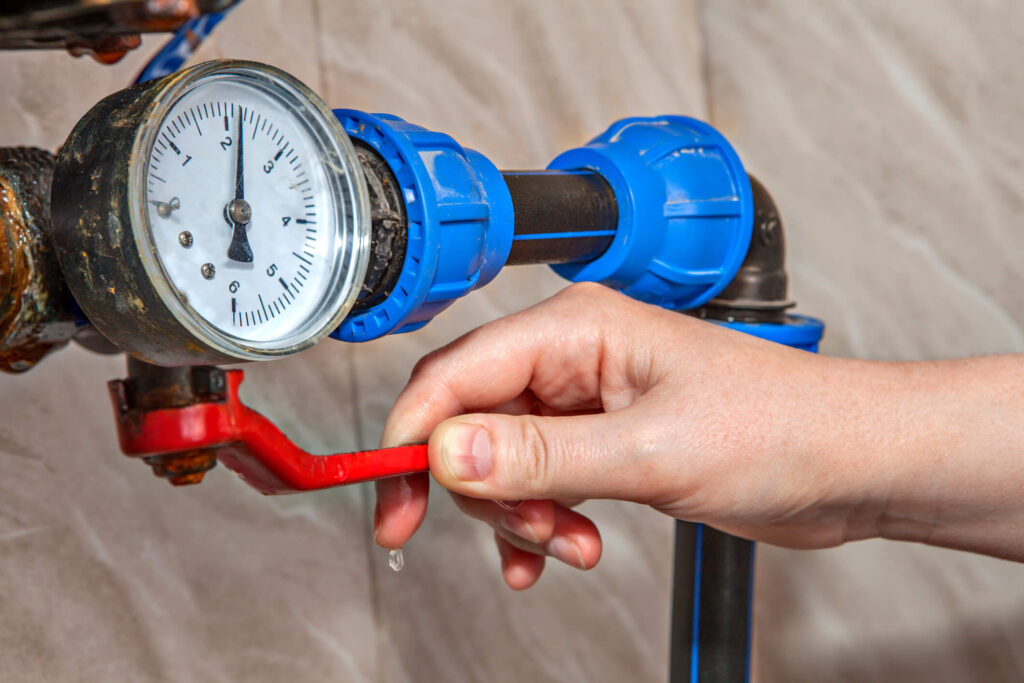Water hammer is the result of a surge in pressure, also called a “high-pressure shockwave,” within a piping system because the moving fluids are forced to suddenly change direction or abruptly stop. This occurrence can happen to any valved piping systems, like the ones in most homes. It’s important to know about this phenomenon to be aware of its effects and what you can do about it.

More Water Hammer Details
Water hammer is also commonly referred to as a hydraulic shock or hydraulic surge. You can recognize it by the sounds of banging or knocking on the pipes after they’ve been turned off.
Basically, when an open valve suddenly closes, it causes the water to slam into it resulting in the knocking sound. This can also happen if a pump shuts down and reverses the flow of water/liquids back to the pump.
The Effects of Water Hammers
This may sound noisy and harmless, but a water hammer can lead to real damage to your pipes. The impact force from the water hammer can go as high as five, or even ten, times the system’s normal working pressure. When that is directed to a piping joint or valve in a single strike or over a long period of time, it can lead to some real damage.
Here are some potential negative effects to be aware of:
- Pump and System Damage — Constant water hammers can apply pressure to the valves and the pump leading to damage and failure.
- Leaks — By damaging fittings and connections, leaks and cracks can start to develop over time. These start small and can grow into much bigger problems.
- Broken Pipes — Depending on the force of the pressure, a water hammer can break through
These issues are also associated with potential property damage and the need to fix/replace pipes. If you have experienced water hammers a lot and believe that something may be wrong, do not hesitate to give the professionals at Rooterman a call.
Reducing Water Hammer Occurrences
There are a few different ways to mitigate damage and prevent water hammers from happening. One of the key ways is to change the type of check valves used in your system.
Most check valve types, such as swing or piston-style, use gravity and the flow of water to close the valves which can lead to the water hammer pressure shockwave. By changing the type of valve to a silent or spring-assisted check valve, you can stop that from happening. They rely on an internal spring that closes the valve instead of relying on the water’s flow, reducing the risk of a water hammer.
Other methods to reduce water hammers include:
- Air chamber fittings
- Flushing old systems
- Installing pressure regulators
- Reduce overall pressure
Call Rooterman TX for Professional Assistance
It’s better to deal with water hammers early before it becomes a bigger issue. So if you are experiencing them or just hearing some weird noises from your pipes, Rooterman TX is here to help. Contact us at 281.351.4422 for professional plumbing services and solutions.
